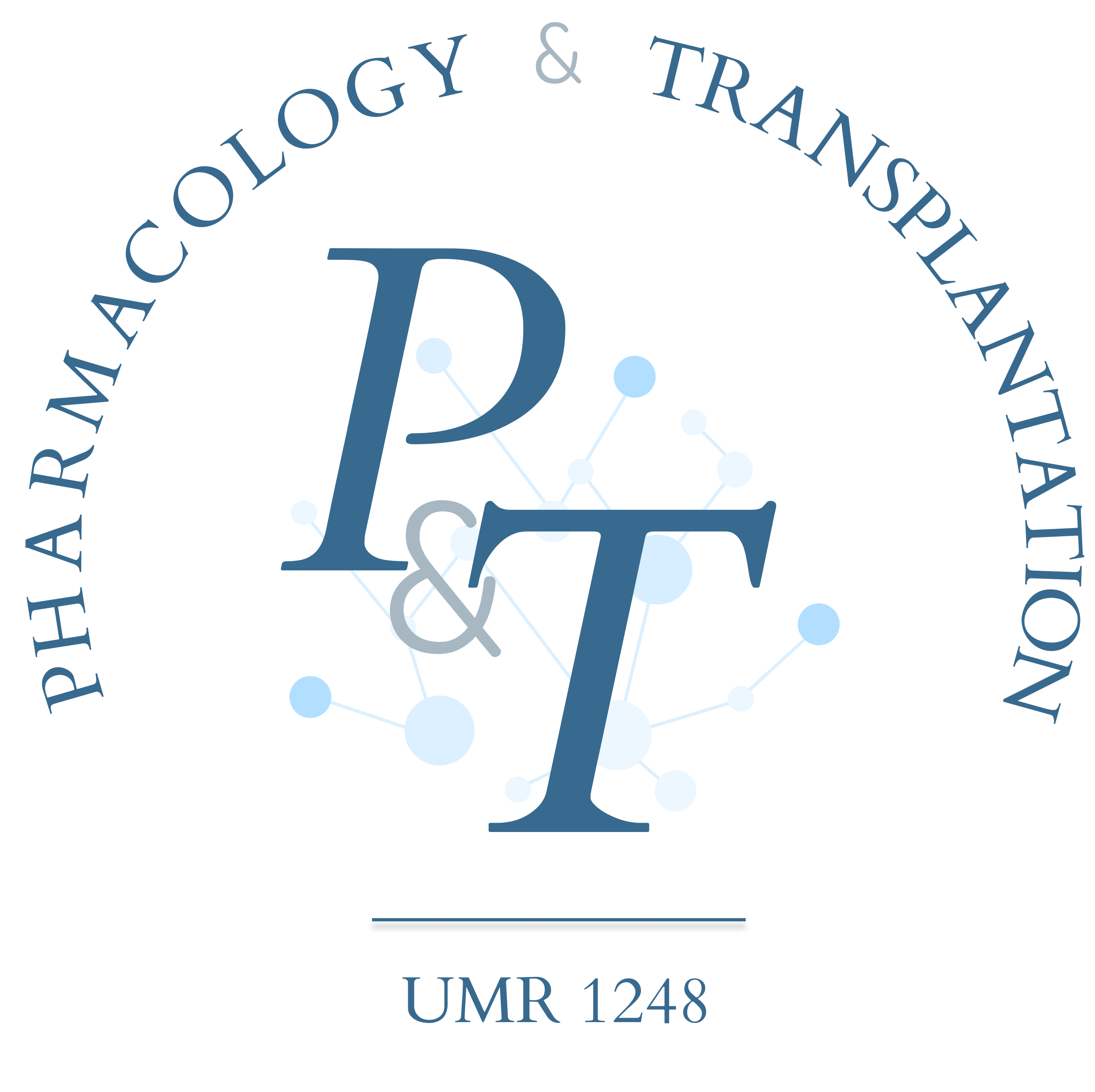|
Our research aims to better understand the mechanisms responsible for the variability in treatment responses by focusing on local pharmacokinetics using multi-scale approaches. We study both the role of membrane transporters (ABC and MFS) and the mechanisms of passive permeation of molecules through biological membranes. By combining experimental techniques and molecular simulations, we analyze the dynamics of transporters and their interactions with the cellular environment. |
A significant portion of our work focuses on non-covalent interactions that govern the binding between ligands and proteins, allowing us to refine our understanding of the molecular mechanisms underlying the selectivity and efficacy of transporters. We also investigate the impact of mutations or genetic polymorphisms on the structure and function of ABC transporters.
Through molecular dynamics simulations, we explore the interactions between drugs and membranes with atomic resolution. Our research aims to predict the passive permeation coefficients that govern the passage of molecules through membranes, which are crucial in pharmacology. More specifically, our goal is to model and understand the complexity of the interactions between drugs and membranes.
We are developing organ-on-a-chip models to explore the influence of membrane transporters on inter-organ communication and their impact on local pharmacokinetics, in connection with the Remote Sensing Signalling Theory. These models help better understand the complex interactions between drugs, transporters, and endogenous metabolites, and improve the prediction of treatment effects.



